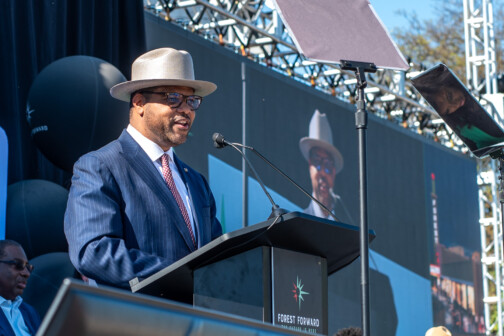Telemedicine may prove to be what extends the life of rural hospitals, though it will be an uphill climb. Since 2010, 18 percent of the nation’s rural hospital closings have been in Texas, despite representing less than nine percent of the country’s population. 113 rural hospitals have closed nationwide since 2010 and around 20 were in Texas; but technology may have a way to keep patients, and the funds that go with them, in these smaller communities.
A partnership between a Dallas-based telemedicine company and rural hospitals may provide a way to keep rural hospitals, which are often one of the largest employers in the area, in business.
Cuero Regional Hospital is a 49-bed critical access hospital in Cuero, Texas, a rural community of 7,000 in southeast Texas. The hospital is part of a federal program to provide hospitals to rural communities, but that hasn’t stopped several from closing in recent years.
Cuero owns and operates its own home health agency, five rural clinics, and a wellness center in town, which helps keep the facility on solid financial ground, and the hospital employs family practice physicians, a podiatrist, general surgeons, providing for the basic needs of the community. Telemedicne may not make the difference for this facility, but it helps keep patient volume in town, which can be essential in the fight to stay open for rural facilities.
Despite the relatively stable financial situation in Cuero, the hospital cannot afford many of the specialists that are essential to a functioning hospital, including orthopedic surgeons, neurologists, nephrologists and others, so many of them visit just once or twice a month. They also have outpatient cardiologists who come three half days a week from Victoria, over 30 miles away.
Cuero CEO Lynn Falcone began thinking about how telemedicine would allow the hospital to treat more local patients and not have to transfer them away to larger facilities, and connected with Dallas-based Access Physicians at a meeting of rural hospitals. Access uses proprietary equipment and software to connect patients with physician specialists all over the country, and Falcone signed up for tele-cardiology because of the busy practice that already existed there.
Access was founded by Dr. Chris Gallagher, who was in the middle of a cardiac electrophysiology fellowship while moonlighting in rural west Texas and fell in love with rural healthcare. While in a role as CMO of a rural hospital in East Texas in, the moonlighting business he started became a telemedicine group when he saw the impact it could have on patients and the hospital. Access physicians was founded in 2013, and has since been endorsed by the Texas Hospital Association and the Texas Organization of Rural and Community Hospitals for their work in telemedicine. The company works with 600 providers and has another 75 support staff, both of which are available 24/7. They have 145 programs in 15 states across the country.
“We view telemedicine as medicine,” Gallagher says. “There shouldn’t be a different model. We want to support the attending physician with this specific part of the patient’s care.”
In one month, the cardiology service in Cuero saw 69 patients, most of whom would have had to travel to receive care prior to the deal landed with Access. “That is just a really good thing to take quality care of our patients here,” Falcone says. “They have been a wonderful partner to work with.”
Falcone has also started a psychiatry clinic once a week via Access, and she would like to start a cardiac rehab and pulmonary program as well using telemedicine. Though the consults and telemedicine visits are not billed by the hospital, keeping the patients in town helps build patient volume, and it means they are coming back for a follow up visit with a primary care doctor in Cuero rather than the out of town hospital, which they might have done if they had to visit a specialist at the other hospital anyway. They may also need blood work, labs, or other services for which the hospital can bill.
While finances are important for a rural hospital, the small community means that there is a good chance that your nurse is your neighbor and you may see your doctor at the grocery store, so keeping a strong relationship with patients becomes even more important. For Falcone, providing that added care has been an important part of maintaining quality care.
Falcone says patients have enjoyed the video screen visits on the Access carts, which have attached medical equipment, a camera, a microphone, and link up the electronic health record. The physician is in a way more present, Falcone says, because the physician is unable to leave the room unless an employee wheels the cart and video screen out. There has been a release of some of the fear,” Falcone says of telemedicine. “There has been very good word of mouth. [Access is] not just a contractor; they really are a partner.”





